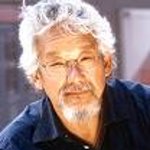By Elizabeth Willoughby on
Environmentalist David Suzuki was very pleased when he found out that Jeff Rubin, former CIBC World Markets Chief Economist, had written The End of Growth, a book explaining that an economy cannot continue to grow without end on a finite planet.
This meant an end to Suzuki’s lonely stand on the message, which he’s taken a lot of criticism for over the years because he’s an environmentalist, not an economist.
Suzuki believes that the fundamental disconnect between modernity’s understanding of survival (that it depends on the economy) and his message that the environment (including the management of ecology and economy) determines the survival of the species is not so hard to comprehend.
“For 95 percent of human existence, we were nomadic hunter-gatherers,” he explains. “We had to carry everything we owned on our backs and we had to follow plants and animals through the seasons. When you exist as a nomadic hunter and gatherer, you know very well that we depend on nature for our very survival.”
Eventually came farming, and by 1900, most people lived in small, rural villages and were involved in some aspect of farming. Farmers, like nomads before, understand weather, climate and seasons very well, and they understand that humans are dependent on nature. Only 100 years later, however, big cities came to dominate.
“In a city,” says Suzuki, “your highest priority becomes your job, because you need a job to earn the money to buy the things you want. The economy, then, becomes the highest priority because [in a city] our dependence on nature isn’t nearly as obvious. Therefore, we say, ‘We can’t afford to do anything about climate change; it’ll destroy the economy.’ We elevate the economy above everything else,” lost to the fact that there can be no economy without life.
Suzuki says he’s tired of fighting industry. Fighting necessitates a winner and a loser. Better, he says, would be to ask, “What are the fundamental things that everybody agrees are the most important needs? And then we’ll ask what role all the sectors play in protecting and valuing our needs. We live in a world dictated by physics. There are limits. We need air. How can we continue to use the air as if it’s free and we can dump our most toxic chemicals in it? We are water created by water and yet we use water as a toxic dump. We use the soil that gives us our food to dump our most toxic chemicals as if it’s going to go away. Long before economics or business or governments, those are our most fundamental needs. We have to then build a new society by protecting those things. Can it be done? Absolutely. And we’ve got no choice, we’ve got to get on with it.”
On book tour with Jeff Rubin across Canada, you can hear the two speaking about the environment, economy and limits of growth here.
Copyright © 2013 Look to the Stars


